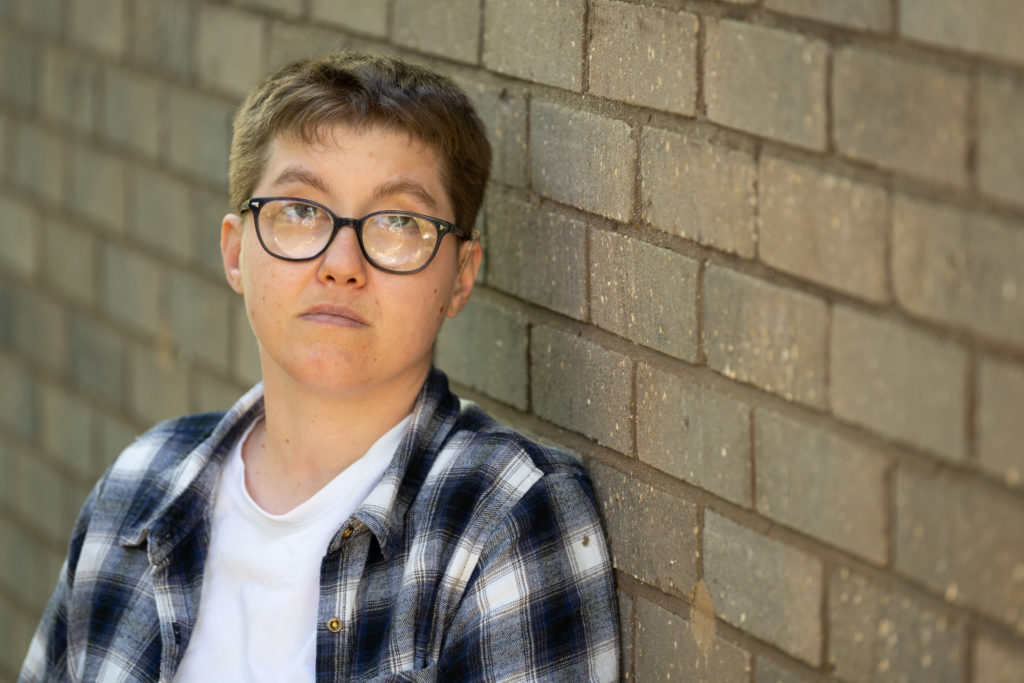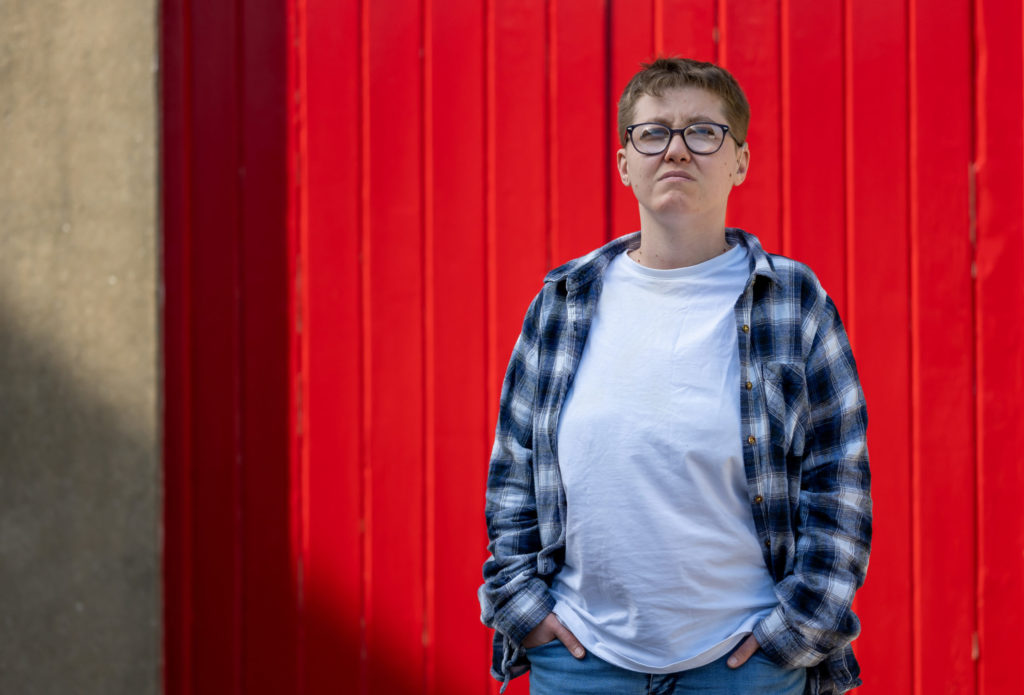Disabled people like me who can’t work more hours are being left behind
Emma works and volunteers for Sense in Bristol, running activities for disabled and non-disabled children. Emma is 34 and is deafblind, as a result of congenital rubella syndrome. She also has epilepsy. She lives with her wife Natalie, who is a support worker and also Emma’s carer. They both work part-time, and rely on benefits to make ends meet.
Emma told us all about how the cost of living crisis is impacting her and her partner.

All the costs going up are worrying me. Rent and bills are going up constantly. It’s worrying and challenging.
I’m having to be careful what I’m spending, and rely on others to help me through the month. I’ve been borrowing money from my mum.
We’ve had to make choices and sacrifices. It’s hard to get out of the cycle of living week-by-week. It’s becoming a major issue and needs to be addressed.
I’d work more hours if I could, but it’s not an option
I work four hours a week for Sense, and I receive Personal Independence Payment (PIP) and Employment and Support Allowance (ESA). This tops up my wages.
If I could work more I would, but I’m not in a situation where I can, due to my health. I can’t physically work more.
I get support from Access to Work, which helps me do the hours I can. I have to get taxis to and from work, and I have a support worker with me during my shift.
My wife Natalie has also gone down to part-time hours now, because she’s also a carer for me. She has to help me with stuff if I’m struggling, for example if I’ve had a bad day with seizures. For her mental health, she had to cut her working hours.
We face extra costs because of disability
The rise in energy bills is the cost that’s affected us the most. It’s taken a massive leap. It’s hard because we’ve got medical equipment that has to keep running through the day and night.
“We can’t go out and about and do things like we used to. We haven’t had a holiday this year. We just can’t afford it.”
I have an emergency buzzer alarm that I have to wear when my wife is out, so that if I fell or had a seizure, it would ring an ambulance. Also, under my pillow at night, I have a fire alarm that would vibrate if there was a fire, because without my hearing aid in when I’m asleep, I wouldn’t hear the fire alarm.
Natalie also has a sleep apnea machine, which has to be on during the night. She needs that, or she could die in her sleep.
We’re struggling to put the heating on. This has a big impact on me, because I have arthritis. I feel physical pain when I’m cold.
We’re lucky to have a Motability car, which Natalie is able to use to go to work. But the cost of petrol has gone up so much that we can’t really use it to go anywhere else.
We can’t go out and about and do things like we used to. We haven’t had a holiday this year. We just can’t afford it.

We need more support, financially and emotionally
The sad thing is a lot of people assume that people who have disabilities get a lot of money. They think we don’t want to work, we just sit back and claim off the government, and we’re made of money. But it doesn’t work like that.
We still have bills to pay, we still pay full rent and council tax, like everyone else. That takes pretty much all of our wages and benefits.
Everyone’s situation is different. Please don’t judge. When we ask for support, sometimes it’s not even money we need – it’s understanding. Disabled people are really struggling.
The support we have received so far isn’t enough to get us through this crisis. I got a £150 cost of living payment earlier this year, because I receive disability benefits.
I thought that I was going to get the £650 payment too, because I receive ESA, but it turned out I wasn’t entitled to it. We were waiting on that money, only to realise we couldn’t get it. The system is so confusing, that’s part of the problem.
For me personally, the one-off £150 payment was gone in a day. The bills swallowed it up. It’s literally a very short-term, 24-hour situation. We need long-term plans, and these need to help everyone.
We’re still people, we have a right to be able to live an independent life. A lot of people, like me, can’t physically work full time. If we can’t keep up with putting food on the table, it’s really not fair.
Money is not the answer to everything, but at the moment it’s something quite significant.
The government really needs to listen to our stories. They need to really, really listen to how this is affecting us, not just financially, but physically and mentally, too.

